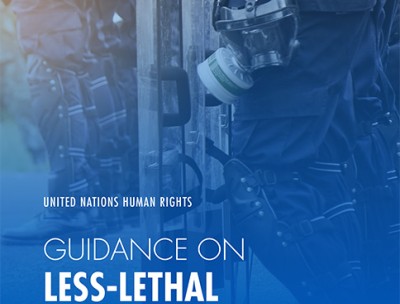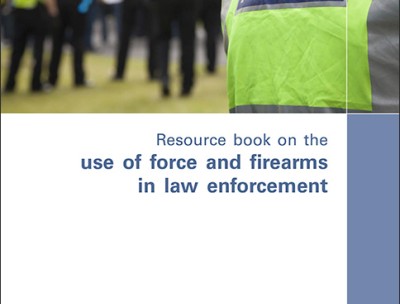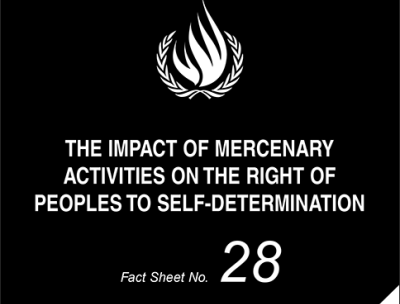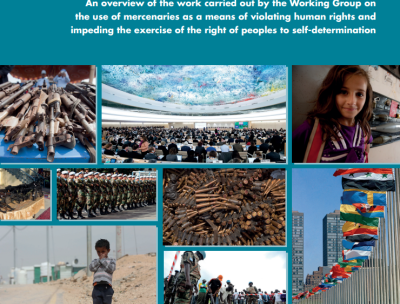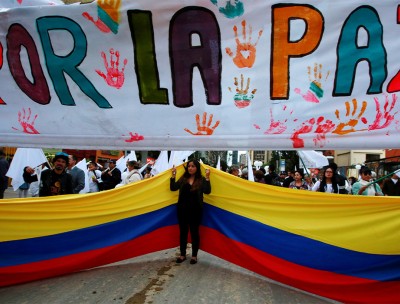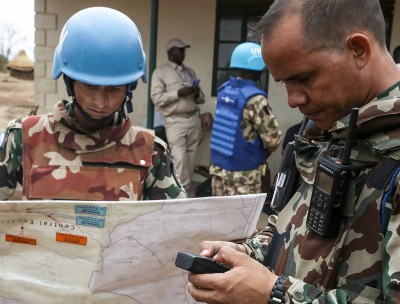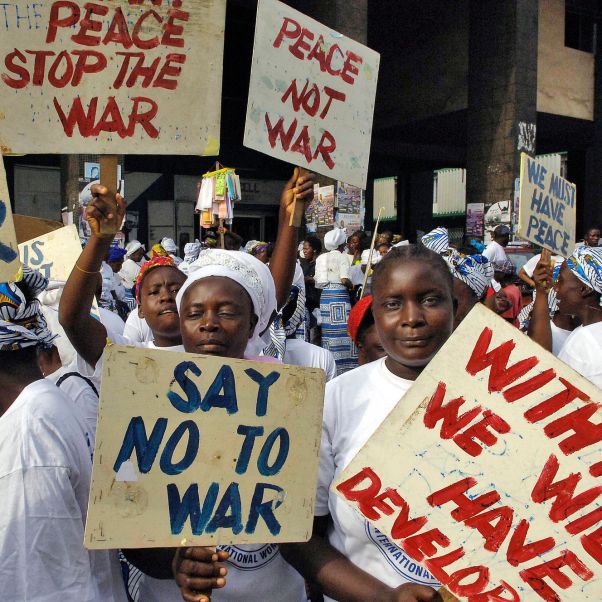
About
Human rights violations are a significant indicator of conflict and crisis. Human rights monitoring and analysis can help to identify many of the issues that can lead to conflict and crisis, so measures can be taken to address and prevent them. The human rights normative framework provides a sound basis for addressing issues of serious concern within or between countries that, if left unaddressed, may lead to conflict.
The use of mercenaries poses a rising threat to international peace and security, and like genocide, is a crime against humanity. Its human rights violations go beyond the context of armed conflicts, extending to criminal activities such as people trafficking, weapons, precious stones and drugs.
Weapons initiate, sustain and exacerbate armed conflict and crime, as well as destabilize communities. Armed conflicts are increasingly fought in highly populated areas, so many of those killed and injured by weapons are civilians. When social, commercial, infrastructural, cultural, educational, religious and healthcare facilities are damaged, there is a long-term impact on a wide range of human rights.
Our work
Prevention forms a central part of how UN Human Rights works to protect human rights. Human rights are at the core of creating national protection systems, building resilience, and mitigating the worst impacts of crises and conflicts on those most vulnerable. Our work on the human rights aspects of early warning and prevention is central to the UN’s renewed focus on sustaining peace.
The early warning role of human rights mechanisms – from Human Rights Council Special Procedures and the Universal Periodic Review to Treaty Bodies – has been widely recognized. By supporting them, we also contribute to the prevention of crises and conflicts, as well as to sustaining peace through the technical assistance that many of these mechanisms provide.
Prevention is also key to advancing sustainable development goals. We help to sustain both peace and development by showing how applying human rights can address grievances, reduce inequality and build resilience.
We study and identify causes, emerging issues and trends in mercenary-related activities and private military and security companies. A key goal is to strengthen the international legal framework to prevent the recruiting, financing and training of mercenaries. In our work on arms and weapons, UN Human Rights seeks to support Sustainable Development Goal 16, in particular the goals of reducing violence, and significantly reducing illicit financial and arms flows by 2030.
Who else is involved
The Working Group on the use of mercenaries as a means of violating human rights and impeding the exercise of the right of peoples to self-determination
The Working Group is tasked with studying the human rights violations, in particular to the right of peoples to self-determination, committed by mercenaries and those engaged in mercenary-related activities, as well as private military and security companies. It does this through fact-finding missions, thematic studies and individual allegations.
Open-ended intergovernmental working group to consider the possibility of elaborating an international regulatory framework on the regulation, monitoring and oversight of the activities of private military and security companies
The Working Group was created by the Human Rights Council through resolution 15/26 on 1 October 2010. It was given a mandate “to consider the possibility of elaborating an international regulatory framework, including, inter alia, the option of elaborating a legally binding instrument on the regulation, monitoring and oversight of the activities of private military and security companies, including their accountability, taking into consideration the principles, main elements and draft text as proposed by the Working Group on the use of mercenaries as a means of violating human rights and impeding the exercise of the right of peoples to self-determination.”
